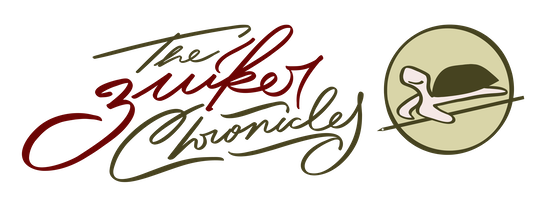Free to read
by Anton Zuiker on March 15, 2019
Match Day over and the work week done, I came home, retired to the sofa, flipped on the television, and found a TED talk to watch: Dan Barber on How I fell in love with a fish.
Erin joined me in the living room to listen to Barber talk about truly sustainable fish farming in Spain.
I mentioned to Erin that Barber’s book was one of the best I’d read in the last 10 years. I found it in the library and handed it to her.
“I haven’t seen you reading this,” she said.
“It’s been awhile,” I said. “I read it that year I was quiet.”
The quiet year was my blogging and social media sabbatical, when I read a lot, got outside often to breathe, walk and run. Eventually, I wrote a 3,000-word essay that I thought would be a good way to explain what my reflection had helped me realize, but then I boiled that down to less than 300 and made that my Zuiker Chronicles redux post.
Holding Barber’s book again tonight, I tried to remember what I’d written about Third Plate. Here are two sections of that longer essay, with the themes and references that have made it into many of my blog posts since.
∷
From the bookshelf, I took down the paperback copy of Blue Highways, by William Least Heat-Moon. This was a book I started in college, but never finished. A classic of narrative nonfiction, it’s a journal of Least Heat-Moon’s getting out—his university sabbatical and journey across America, and a chronicle of conversations he had with people in small-town cafes and roadside campgrounds. I recognized many of the places on his journey, geographical but also emotional. I devoured Delicious, a novel by food writer Ruth Reichl, with a protagonist who is mentored by an old-school Italian deli owner who takes his sweet time to talk and listen to his customers. I take time to read, take my time reading, Capote, McCann, Mitchell, Patchett, Steinbeck, Cervantes, Finnegan, Boo, and others.
Blue Highways made me want to get out and travel. The Rural Life, by Verlyn Klinkenborg, made me want to sit down and watch. Klinkenborg reflects on small details and routine activities on his weekend farm in upstate New York, in short essays that are insightful and meaningful, just the kind of writing I’d always wanted to do myself. Klinkenborg is a professor of creative writing, and his newest book is ‘Several short sentences about writing.’ To write as clearly as possible, he advises, be observant, reflect on what interests you, and, above all, notice what you are noticing. Or, “See what you’re looking at,” chef Dan Barber quotes wheat farmer Klaas Martens quoting soils professor William Albrecht, in Barber’s excellent The Third Plate meditation on the future of food. Sitting one afternoon on my favorite stone bench in the Duke Gardens, I watched a great blue heron hunting slowly in the stream. The bamboo rubbed and rustled gently in the breeze, and slow deep breaths filled my lungs with warm Spring air. After a while, I noticed that I felt no need to rush that image out to the world. What I was looking at was mine, for just that moment.
∷
The TED talk over, and the Duke-UNC game still to start, we watched the stunning documentary Free Solo about Alex Honnold’s climb up El Capitan without any ropes. An amazing feat.
Next post: Into the wildflowers
Previous post: Look for the row of heartsGo to HOME

